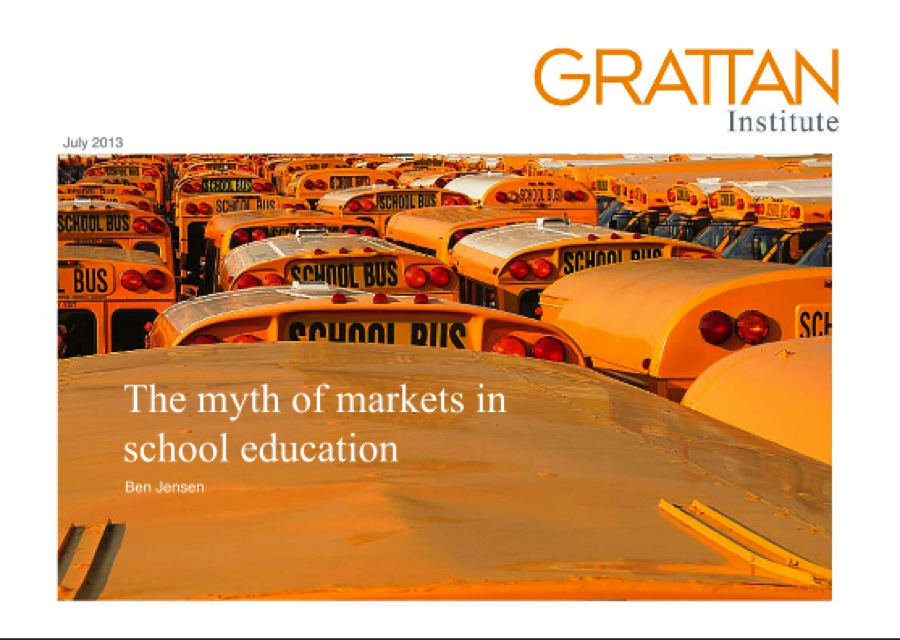Tucker’s Lens: Education Markets Are a Myth, Not a Solution
September 06, 2013
By: Marc Tucker
 Ben Jensen, education director of the Grattan Institute in Australia, recently produced the best analysis of the way markets do or don’t work to produce improvements in school performance I have yet seen. Overcoming the methodological difficulties that have plagued such studies in the past, he makes a well-documented case not only that market strategies have failed to improve the performance of schools at the system level, but that, given the nature of this particular market, they cannot do so. He describes why this market fails to produce the market forces that would produce incentives for schools to improve their performance and he then explains why it is so hard for democratic governments to make policies that would overcome those sources of market failure.
Ben Jensen, education director of the Grattan Institute in Australia, recently produced the best analysis of the way markets do or don’t work to produce improvements in school performance I have yet seen. Overcoming the methodological difficulties that have plagued such studies in the past, he makes a well-documented case not only that market strategies have failed to improve the performance of schools at the system level, but that, given the nature of this particular market, they cannot do so. He describes why this market fails to produce the market forces that would produce incentives for schools to improve their performance and he then explains why it is so hard for democratic governments to make policies that would overcome those sources of market failure.This is, of course, no small matter in the United States. The expansion of the population of charter schools is right up at the top of the agendas of both the Republican and Democratic parties in this country. While many people believe that, in a democracy, parents ought to be able to choose their child’s school irrespective of the impact of charters on student achievement, charters have most often been justified on what is taken to be the self-evident proposition that competition in the school market will produce better schools at lower cost, as competition has done in so many other markets. But what if that is not true? What if this particular market does not function that way? What if there are so many sources of market failure and those sources of failure are so hard for government to fix that increasing competition among schools not only will not but cannot lead to improved school performance overall?
Jensen begins his report with a thorough review of the literature on this topic, including the studies done by American researchers. While he notes that the effect sizes claimed by researchers on both sides of the controversy are very small, he also notes significant differences in findings, which he attributes to methodological difficulties, which he then describes in some detail.
Taken together, these methodological problems make it very difficult to determine how much competition there actually is in any given situation, much less the degree to which parents make their choices on the basis of relative school performance and even less the degree to which competition on school performance leads to a net
